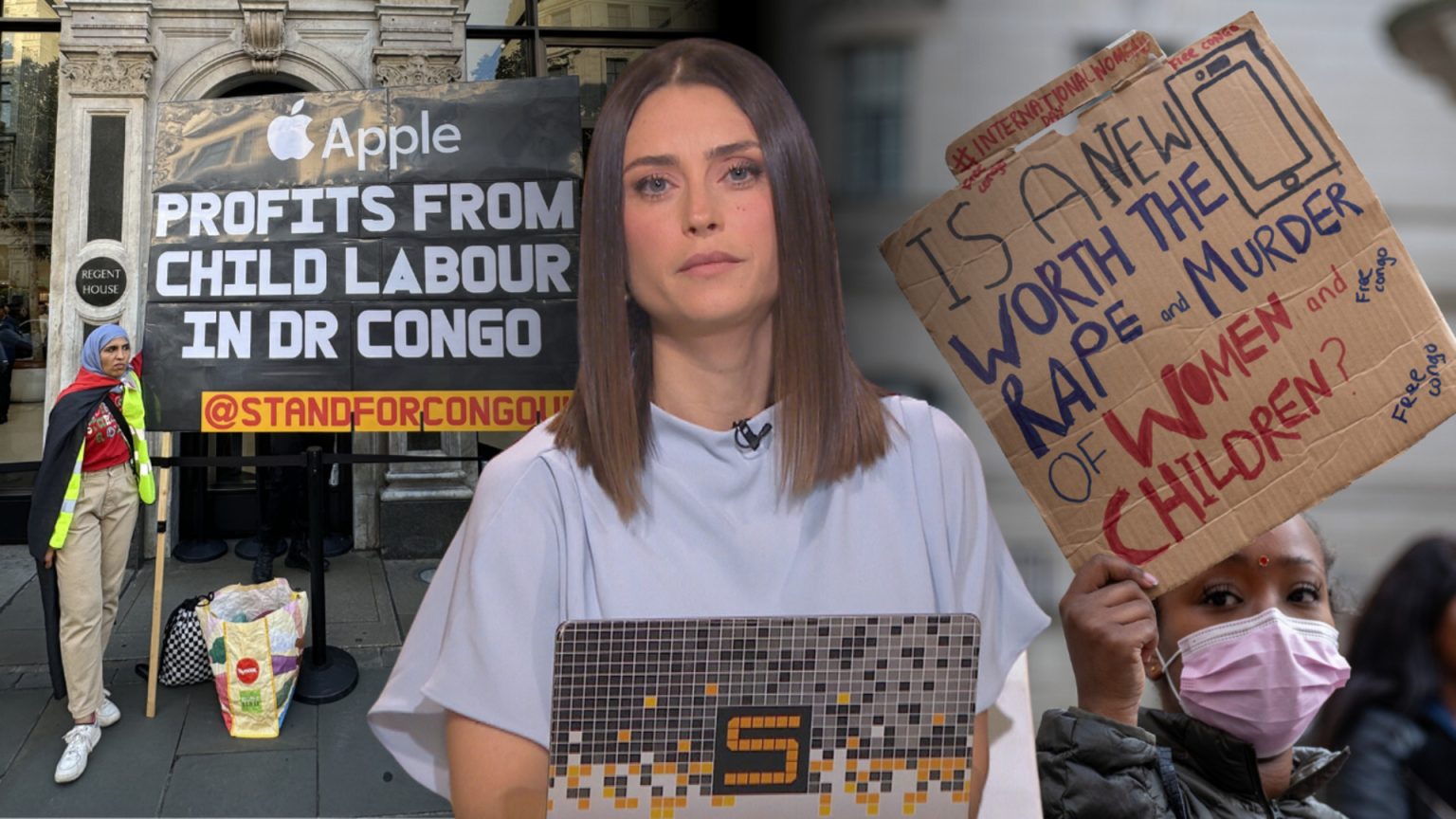The debate on the exploitation of mineral mining in the Democratic Republic of the Congo has been ignited by protests and boycotts surrounding the launch of the iPhone 16. Thousands of activists have gathered outside Apple stores worldwide, demanding accountability for the child labor and human rights abuses linked to the mining industry in the DRC. This episode delves into the intersection of technology, human rights, and the values driving today’s young generation. The guests on the show include writer and activist Tariq Raouf, director of Friends of the Congo Maurice Carney, reporter and producer Nicholas Muirhead, and coordinator of the South African BDS Coalition Roshan Dadoo.
The protesters are chanting slogans like “A child died in Congo for your iPhone,” drawing attention to the human cost of the minerals used in the production of electronic devices. The discussion revolves around how young consumers are using their collective voices to push for change and hold corporations like Apple accountable for their supply chains. The panel challenges the audience to reflect on the ethical implications of their purchasing decisions and the role of corporations in perpetuating global injustices through their business practices.
One of the key points raised in the debate is the need for transparency and traceability in supply chains to ensure that companies like Apple are not complicit in human rights abuses. Tariq Raouf emphasizes the importance of consumer awareness and advocacy in driving corporate responsibility and ethical sourcing practices. Maurice Carney highlights the historical context of exploitation in the DRC and calls for a reevaluation of the extractive industry’s impact on local communities.
Nicholas Muirhead reports on the ground realities of mining operations in the DRC, painting a stark picture of the harsh conditions faced by workers and the environmental degradation caused by unregulated mining activities. Roshan Dadoo discusses the role of the BDS movement in raising awareness about corporate complicity in human rights abuses and advocating for divestment from companies that profit from exploitation. The guests stress the urgency of addressing these issues and urge consumers to use their purchasing power to demand change from companies like Apple.
The debate underscores the power of collective action and consumer activism in holding corporations accountable for the social and environmental impacts of their operations. It also highlights the need for a shift towards ethical sourcing practices and a more sustainable approach to production in the tech industry. As the protests over the iPhone 16 continue to gain momentum, the panelists call for a reimagining of global supply chains and a renewed focus on human rights and social justice in corporate decision-making. The episode concludes with a call to action for individuals to educate themselves about the supply chains of the products they buy and to support ethical companies that prioritize transparency and accountability.













